
Feb 12 , 2024
Introduction
Coffee lovers seeking alternatives to traditional cow's milk have various options to enhance their coffee experience. Almond, soy, oat, coconut, cashew, and rice milk are popular substitutes, each offering distinct flavours and nutritional benefits. These alternatives cater to diverse dietary needs, including lactose intolerance and veganism. They also address environmental concerns, as many have less ecological footprint than dairy milk.
When choosing a milk alternative, it's essential to consider factors such as taste preferences, nutritional content, and environmental impact. By exploring these options, coffee enthusiasts can enjoy a personalised and health-conscious coffee routine that aligns with their values and dietary requirements.
1. Almond Milk
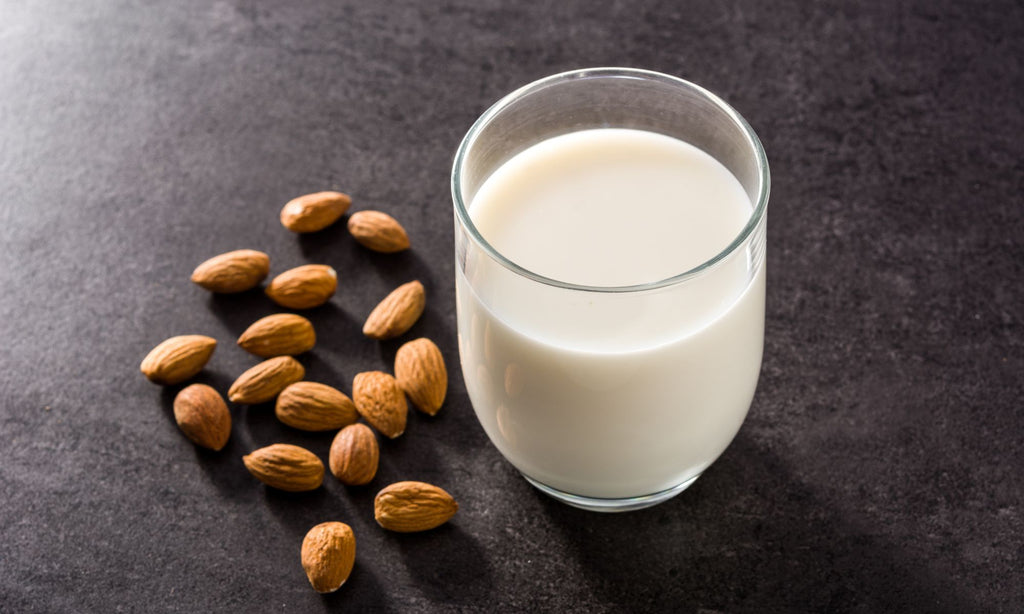
Almond milk is famous for coffee enthusiasts looking for a dairy-free option. It is made from ground almonds and water and is naturally low in calories and fat. Almond milk is also a good source of vitamin E, an antioxidant that helps protect the body from free radicals. However, it is essential to note that almond milk is lower in protein than cow's milk and other alternatives.
Environmental Impact
Almond milk production requires a significant amount of water, particularly in almond-growing regions like California, which raises concerns about its environmental sustainability.
2. Soy Milk
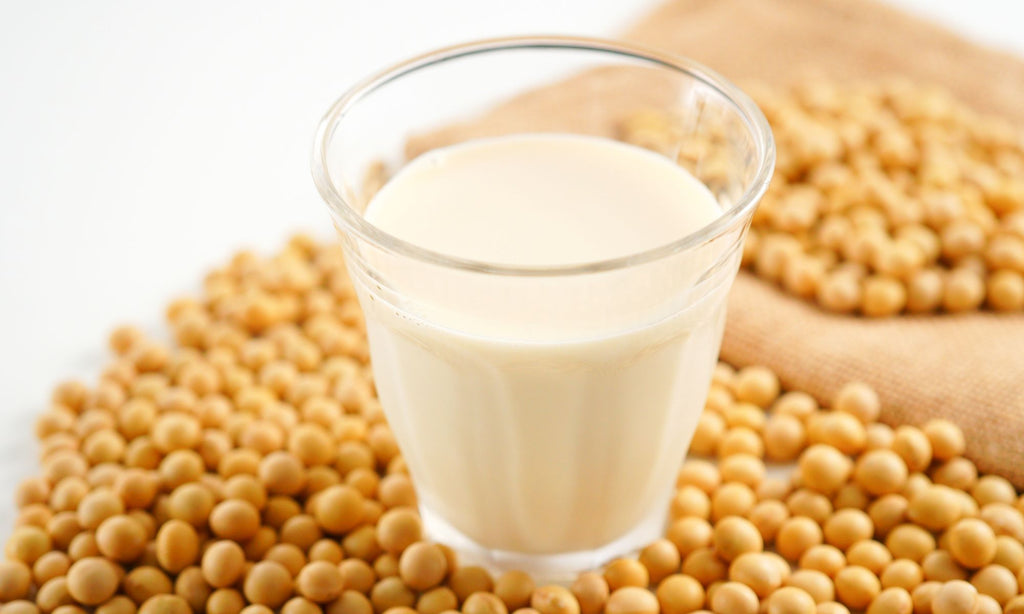
Soy milk is one of the most traditional soybeans or protein isolate alternatives. It is a good source of protein, comparable to cow's milk, and is also rich in vitamins and minerals such as calcium and vitamin D when fortified. Soy milk has a creamy texture and a mild flavour, making it a popular choice for coffee.
Environmental Impact
Soy milk has a lower environmental footprint than dairy milk, particularly regarding greenhouse gas emissions and land use.
3. Oat Milk
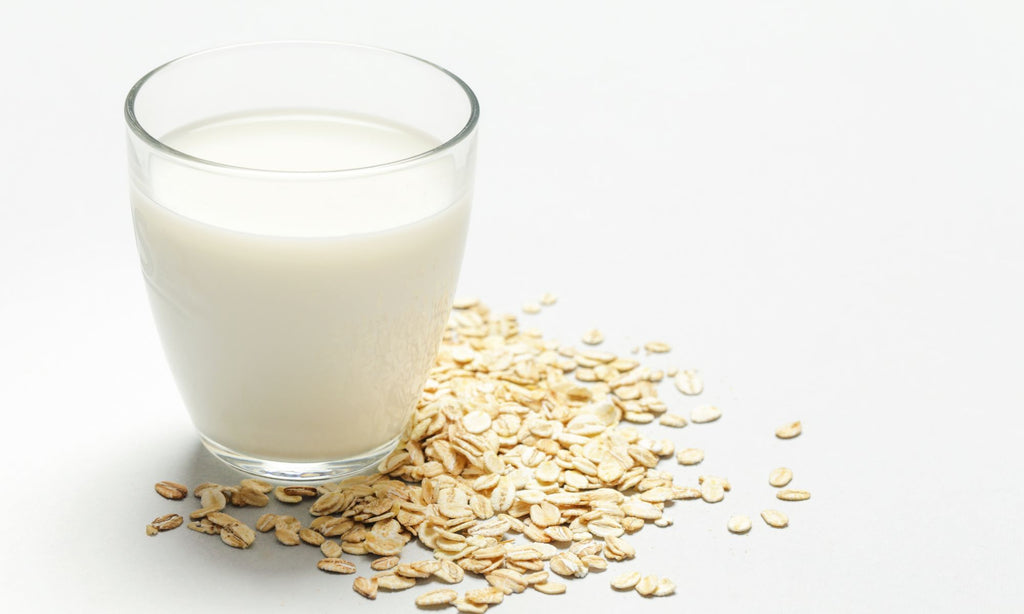
Oat milk has gained popularity in recent years for its creamy texture and naturally sweet flavour. It is made from oats and water and is often enriched with vitamins and minerals. Oat milk is a good source of dietary fibre and is naturally free from lactose, nuts, and soy, making it an excellent option for those with allergies or intolerances.
Environmental Impact
Oat milk is considered to be more environmentally friendly than almond milk, as oats require less water to grow.
4. Coconut Milk
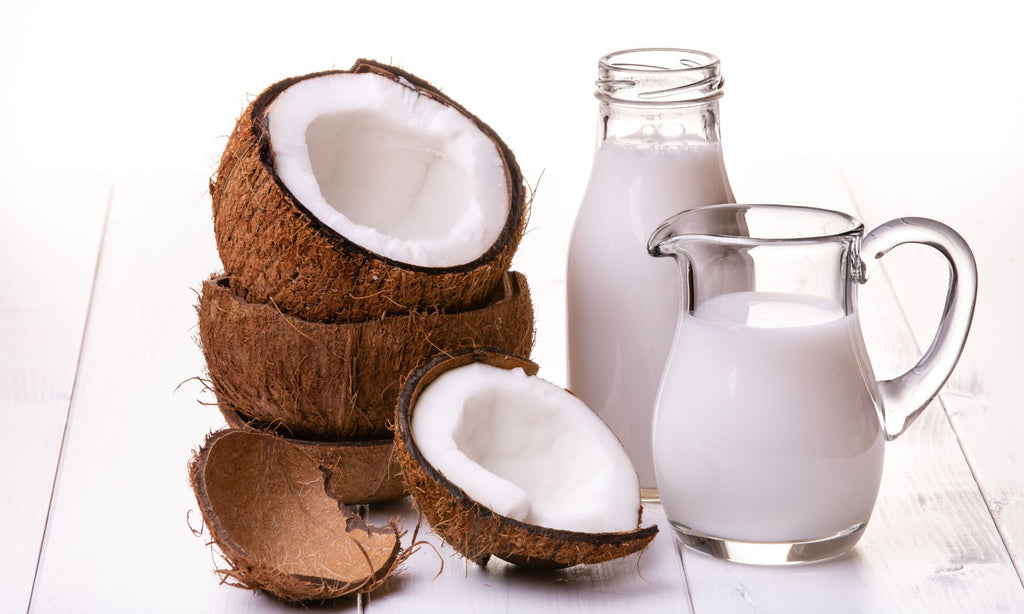
Coconut milk is made from the grated flesh of coconuts and water. It has a rich, creamy texture and a distinct coconut flavour. Coconut milk is higher in fat, particularly saturated fat, than other milk alternatives, but it also provides medium-chain triglycerides (MCTs), which are believed to have various health benefits.
Environmental Impact
The environmental impact of coconut milk production varies depending on the farming practices and region, but it is generally considered to have a lower carbon footprint than dairy milk.
5. Cashew Milk
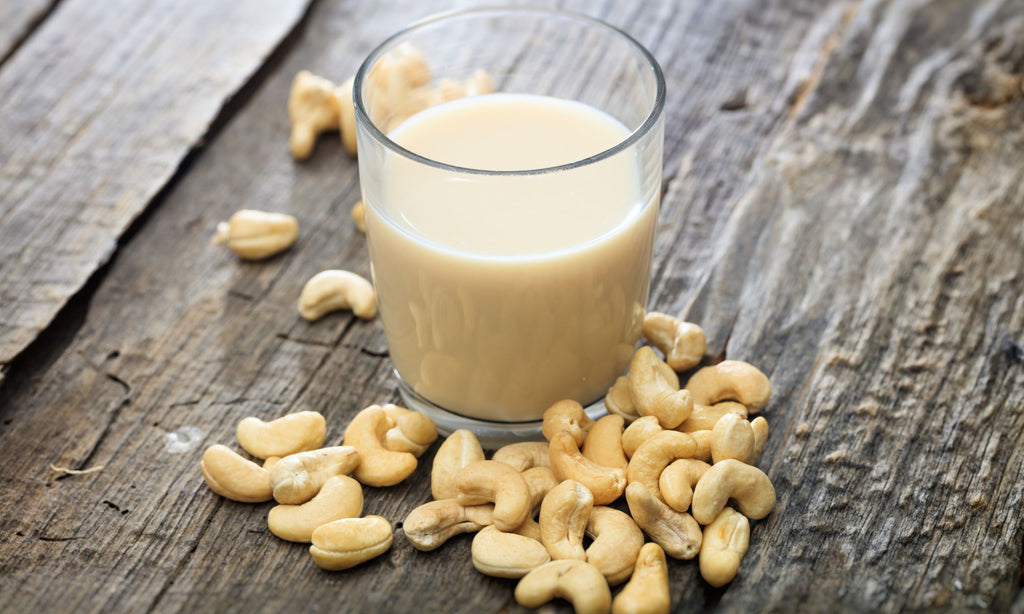
Cashew milk is made from blended cashews and water and is known for its rich, creamy texture and mild, nutty flavour. It is lower in calories and fat compared to cow's milk and is often fortified with vitamins and minerals. Cashew milk is a good option for those looking for a dairy-free alternative with a subtle taste.
Environmental Impact
Cashew milk has a relatively low environmental impact compared to almond milk, as cashew trees require less water to grow.
6. Rice Milk
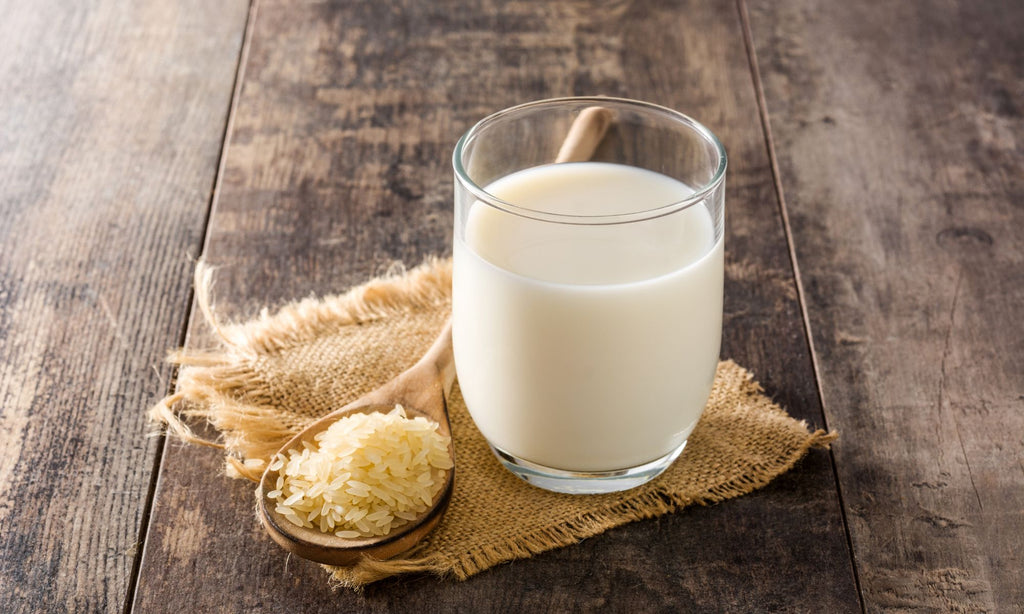
Rice milk is made from milled rice and water and is the most hypoallergenic of all milk alternatives, making it suitable for people with allergies to dairy, nuts, and soy. It has a naturally sweet flavour and a thin, watery texture. Rice milk is low in protein and fat but is often fortified with vitamins and minerals.
Environmental Impact
Rice milk production has a moderate environmental impact, with water use being a primary concern due to the water-intensive nature of rice cultivation.
Nutritional Considerations
When choosing a milk alternative for your coffee, it's important to consider your nutritional needs. Some other options, like soy and oat milk, are good sources of protein, while others, like almond and cashew milk, are lower in calories. It's best to consult with a healthcare professional or a registered dietitian if you have specific dietary requirements or health concerns.
Levista Coffee Powder
Levista Coffee Powder is a popular brand of coffee from India, known for its rich aroma and robust flavour. Crafted from a blend of carefully selected Arabica and Robusta coffee beans, Levista offers a range of coffee powders catering to various preferences, from strong and intense to smooth and mild. The brand takes pride in its state-of-the-art processing facilities, ensuring that each cup of coffee delivers a consistent and satisfying experience.
Levista Coffee Powder is widely appreciated for its ability to create both traditional filter coffee and modern espresso-based beverages, making it a favourite among coffee enthusiasts. With its commitment to quality and taste, Levista has established itself as a distinguished name in the Indian coffee market.
Bottom Line
Numerous milk alternatives are available for those looking to switch up their coffee routine or accommodate dietary restrictions. Each alternative offers its own unique flavour, nutritional profile, and environmental impact. Whether you prefer the nutty taste of almond milk, the creaminess of oat milk, or the tropical flavour of coconut milk, there's an option to suit every palate. When choosing a milk alternative, consider your taste preferences, nutritional needs, and environmental concerns to find the perfect match for your coffee.
FAQs
What are some popular milk alternatives for coffee?
Popular milk alternatives include almond milk, soy milk, oat milk, coconut milk, cashew milk, and rice milk. Each offers a unique flavour and nutritional profile, catering to different dietary preferences and needs.
Is almond milk a good choice for coffee?
Almond milk is an excellent choice for coffee due to its nutty flavour and low-calorie content. It's also a good source of vitamin E. However, it's lower in protein than cow's milk and other alternatives.
Can soy milk be used in coffee?
Yes, soy milk can be used in coffee. It's a popular choice because of its creamy texture and a mild flavour. Soy milk is also a good source of protein and can be fortified with calcium and vitamin D.
What makes oat milk suitable for coffee?
Oat milk is suitable for coffee because of its creamy texture and naturally sweet flavour. It's a good source of dietary fibre and is free from lactose, nuts, and soy, making it a great option for those with allergies or intolerances.
Is coconut milk a healthy option for coffee?
Coconut milk is a healthy option for coffee as it provides medium-chain triglycerides (MCTs), which are believed to have various health benefits. However, it's higher in fat, particularly saturated fat, compared to other milk alternatives.
What are the benefits of using cashew milk in coffee?
Cashew milk is beneficial for coffee because it has a rich, creamy texture and a mild, nutty flavour. It's lower in calories and fat compared to cow's milk and is often fortified with vitamins and minerals.
How does rice milk compare to other milk alternatives for coffee?
Rice milk is the most hypoallergenic of all milk alternatives, making it suitable for people with dairy, nuts, and soy allergies. It has a naturally sweet flavour and a thin, watery texture, but it's low in protein and fat compared to other alternatives.

